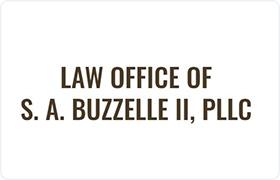 Buckeye Collection Lawyers, Arizona
Buckeye Collection Lawyers, Arizona
Sponsored Law Firm
-
 x
x

Click For More Info:
-
Law Office of S.A. Buzzelle II, PLLC
14050 N 83rd Avenue Suite 290 Peoria, AZ 85381» view mapBankruptcy & Debt Law Your Trusted Bankruptcy Attorney
If you are in need of legal services for matters relating to bankruptcy and divorce, rely on Law Office of S. A. Buzzelle II, PLLC in Peoria, AZ.
800-873-4991
Lawyers
1-10 of 17 matches
Bankruptcy & Debt, Collection, Business, Criminal, Motor Vehicle
Construction, Litigation, Defense Contracts, Collection
Real Estate, Collection, Litigation, Commercial Real Estate
Collection, Trusts, Wills, Real Estate, Commercial Real Estate
Commercial Real Estate, Collection, Bankruptcy, Bankruptcy & Debt



 Stanley A. Buzzelle II Peoria, AZ
Stanley A. Buzzelle II Peoria, AZ Practice AreasExpertise
Practice AreasExpertise